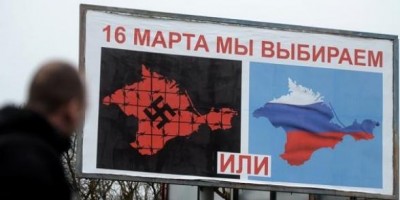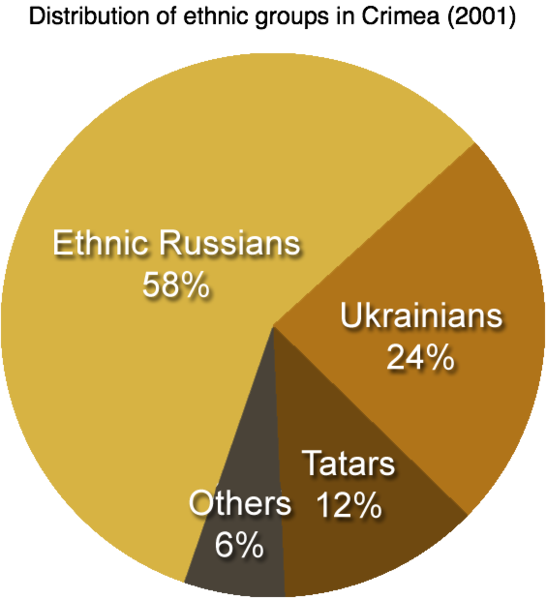Ali Matar
Since the Zionists occupied Palestine and the Palestinian Nakba in 1948, the General Assembly of the United States issued the unfavourable resolution No. 181, which divides the state of Palestine, and the occupied territories of Palestine in 1967 by the Zionists. Since then, "Israelis" have been causing corruption in that holy land.
The occupiers killed Palestinians and confiscated their rights. They have sought, and are constantly seeking to Judaize Al-Quds through several ways in light of the disgraceful Arab silence. The "Israeli" occupier is currently seeking to impose its authority on Al-Aqsa Mosque and to withdraw the Jordanian state from it through announcing its decision in the Knesset. It's a plan that paves the way for a complete Judaization.
It is obvious to the whole world that the occupier is seeking to impose plans of dividing Al-Aqsa Mosque through its practices on the ground after effectively controlling over it and its courtyards by implementing all the resolutions concerning Al-Haram Al-Maqdisi and Jerusalemites by force and repression.
This is completely against the international law, which affirms in the military occupation law that it prevents the occupier from changing the landmarks of the occupied territory, and prevents it from imposing its beliefs on the people of the country."Israel" has violated the international law twice. Once, through occupying the Palestinian lands; then, by seeking to withdraw the guardianship of Al-Quds from its religious endowments department (awqaf) that is affiliated with the Ministry of endowments, holy shrines, and the Islamic Affairs in Jordan. This state is considered a legitimate and legal right maintained by the international law, after signing the convention between Palestine and Jordan that gives Jordan the right of guardianship and "the defense of Al-Quds and the Holy Sites" in Palestine. This convention was signed to prevent the occupiers from controlling Al-Quds Affairs, which is considered one of the Islamic and Christian sanctities that cannot be harmed or desecrated.
The following conditions are legally required from the "Israeli" entity in order not to breach the international law, not to change the landmarks of the Holy Quds, and not to infringe Al-Aqsa Mosque:
1) The "Israeli" authorities must be considered as occupation authorities because it is an occupation, according to international law, when an army exercises an unacceptable actual control over lands that it doesn't possess sovereignty rights over. Article 42 of the Hague Regulations of 1907 defines occupation: "The land is occupied when it is effectively placed under the control of the hostile army.
2) The Zionist entity still rejects to apply the Fourth Geneva Convention, and accepts to apply the regulations of the Hague Convention of 1907. Since the Partition Resolution No. 181 confirmed that Palestine was occupied, and that the occupation army is a hostile army, which has established a military rule in the Palestinian territories, the occupation authorities, therefore, must respect the belligerent occupation law and apply it.
3) The status of Jerusalem is determined in accordance with the principles, rules, and provisions of the public international law, particularly in accordance with The Hague Conventions of 1899, 1907, and the Fourth Geneva Convention issued in August 1949, as well as the international agreements affiliated to the international humanitarian law. All of these conventions confirm that the Palestinian territories are occupied and that they belongs to the Palestinian people who were obstructed from sovereignty and independence by the "Israeli" occupiers. Therefore, the occupation army is not allowed to impose its legislation on the Palestinian people, especially when it seeks to Judaize them.
The above mentioned confirms that the Zionist entity is exercising its powers by force on the Palestinian authorities, thus violating the international law- particularly in terms of humanity and the handling of religious beliefs and sanctities that ensure respecting and protecting all religious laws and norms.
The "Israeli" occupation continues to exercise its hostile policies toward the Palestinians and Al-Aqsa Mosque, and its continuous quest to Judaize Jerusalem in accordance with the divisive, racist policies that violates human rights, emphasize the belief of freedom, the international Convention on the elimination of all Forms of racial discrimination, and the decision of the General Assembly of the United Nations 1514, 1960 (a declaration that granted independence to colonized countries and peoples).
It violates as well the resolutions of the United Nations, which affirm the right of the Palestinians to determine their fate, which was voted by the majority in the Committee of Social, Cultural, and Humanitarian Affairs of the General Assembly on November 22, 2013. "Israel" is violating the belligerent occupation law in accordance with the following:
1) The occupying power does not have sovereignty right over the occupied territories, according to the law of occupation. It is required to respect the existing laws and institutions as much as possible. It is assumed in this regard that the occupation is temporary, and that the occupying power will maintain the previous status of the occupation in the occupied territories.
2) The belligerent law affirms that the occupation forces keep the local administration in the region; this confirms the legal breach in transferring Al-Aqsa administration to it.
3) Article 43 of The Hague Convention orders the occupiers to respect the enforced laws and conventions. Therefore, it is not permitted to control Al-Aqsa.
4) The "Israeli" occupier must comply with the obligations of the occupying authority that are mainly laid out in The Hague Regulations of 1907 (Articles 42-78) and the fourth Geneva Convention (Articles 27-34 and 47-56).
Following this presentation of points, it is necessary to point out that what "Israel" is doing today is in violation of international law. It stresses on its racism, aggressiveness, and malicious intentions. Therefore, an action must be held at all levels and using all mechanisms because the situation of Al-Quds has become dangerous, and Al-Aqsa Mosque is under the threat of the Judaizing efforts by the enemy.
Source: Al-Ahed news

 Syrian army discovered on Tuesday the main industry of car bombs in the city of Yabroud, recently liberated from the Takfiri terrorists gangs active in Syria.
Syrian army discovered on Tuesday the main industry of car bombs in the city of Yabroud, recently liberated from the Takfiri terrorists gangs active in Syria.





 The first indications to the new Saudi approach appeared in Saudi Foreign Minister, Saud Al-Faisal's refusal to give his speech at the UN General Assembly in the beginning of October. Two weeks later, Riyadh took a dramatic, unprecedented step in the history of the United Nations when it turned down its rotating seat at the Security Council (18 October). This stance was surprising to the diplomatic circles in New York, especially as Saudi officials have been waging for the past three years an intensive massing campaign to gain a seat at the Security Council, after having submitted a team of 12 diplomats to a one year long preparation course on performing this task in Columbia University.
The first indications to the new Saudi approach appeared in Saudi Foreign Minister, Saud Al-Faisal's refusal to give his speech at the UN General Assembly in the beginning of October. Two weeks later, Riyadh took a dramatic, unprecedented step in the history of the United Nations when it turned down its rotating seat at the Security Council (18 October). This stance was surprising to the diplomatic circles in New York, especially as Saudi officials have been waging for the past three years an intensive massing campaign to gain a seat at the Security Council, after having submitted a team of 12 diplomats to a one year long preparation course on performing this task in Columbia University. For his part, Prince Turki Al-Faisal also participated in the Saudi campaign against Obama Administration, knowing that he was an ambassador of his country in Washington and was the Chief of Intelligence in Saudi Arabia for a long period (1979 - 2001). Al-Faisal chose to deliver his direct message from the American territories, whether by making a speech before the Arab-US Policymakers' annual conference (22 October) or by appearing on US media, specifically his long interview to "Washington Post" (4 November) in which he considered that Obama's policies towards Syria and Iran were wrong and disappointing and the only way to repair things was by finding a solution to the Palestinian cause and putting pressure on Iran which presents itself as a liberator of the Palestinians and Syrians.
For his part, Prince Turki Al-Faisal also participated in the Saudi campaign against Obama Administration, knowing that he was an ambassador of his country in Washington and was the Chief of Intelligence in Saudi Arabia for a long period (1979 - 2001). Al-Faisal chose to deliver his direct message from the American territories, whether by making a speech before the Arab-US Policymakers' annual conference (22 October) or by appearing on US media, specifically his long interview to "Washington Post" (4 November) in which he considered that Obama's policies towards Syria and Iran were wrong and disappointing and the only way to repair things was by finding a solution to the Palestinian cause and putting pressure on Iran which presents itself as a liberator of the Palestinians and Syrians.





 Zionist army said that it attacked several Syrian military sites on Wednesday after a roadside bombing that wounded four of its troops on the occupied Golan Heights on Tuesday.
Zionist army said that it attacked several Syrian military sites on Wednesday after a roadside bombing that wounded four of its troops on the occupied Golan Heights on Tuesday.

 The Syrian army achieved another great victory on Wednesday when soldiers advanced towards Ras el-Ein town east of Yabroud city, which was liberated on Friday.
The Syrian army achieved another great victory on Wednesday when soldiers advanced towards Ras el-Ein town east of Yabroud city, which was liberated on Friday.








 General Amin Hotait, revealed that around 2500 militants escaped from Qalamoun towns into the Lebanese town of Arsal and that they pose a real threat against Lebanon's security unless they are encountered.
General Amin Hotait, revealed that around 2500 militants escaped from Qalamoun towns into the Lebanese town of Arsal and that they pose a real threat against Lebanon's security unless they are encountered. To break the balance of deterrence which was set after 2006 war.
To break the balance of deterrence which was set after 2006 war.


